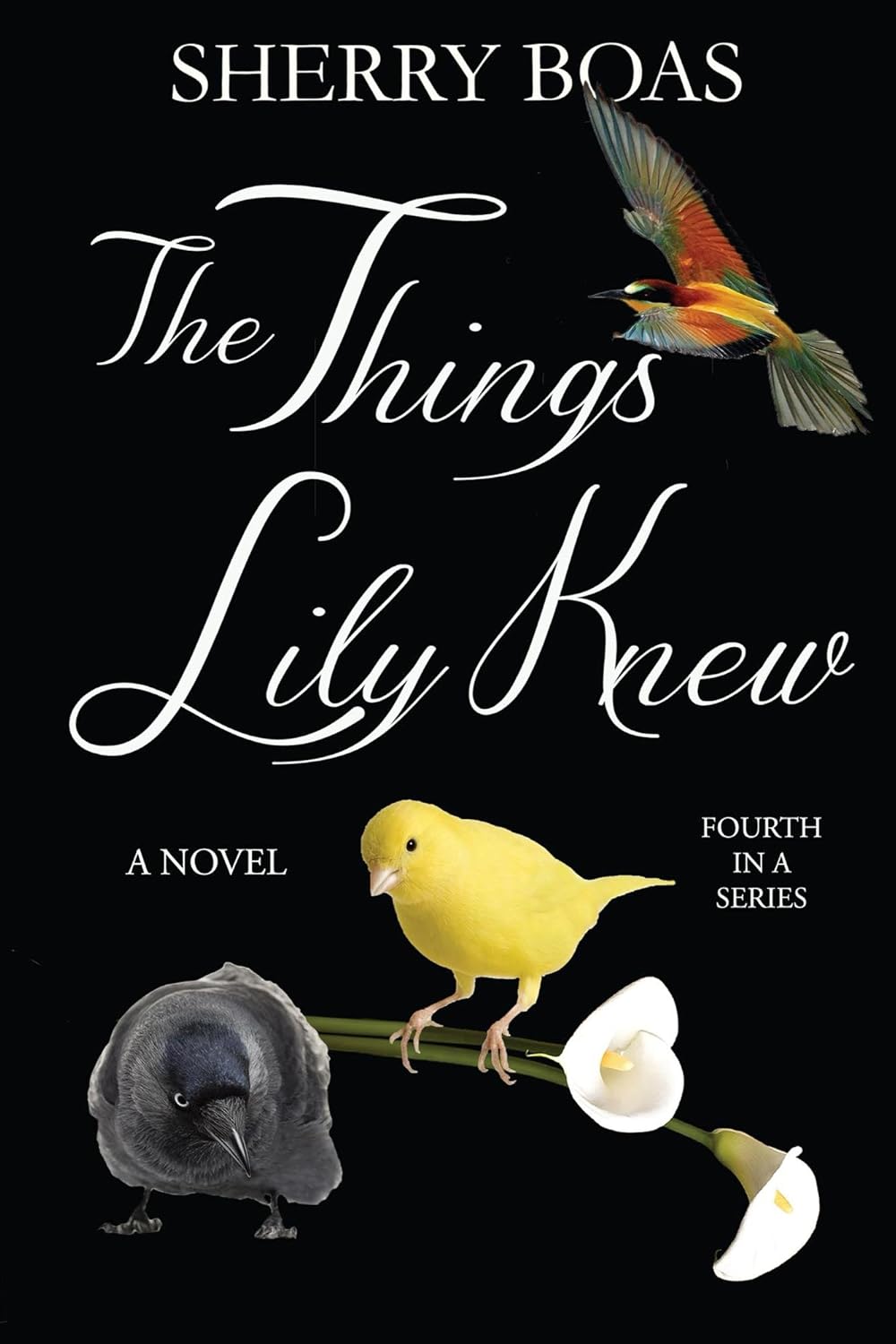
About the Book:
A brilliant Rhodes Scholar whose love life is torn in threes, Annabel Greeley is not lacking in wit or intellect. But when the accomplished geneticist is faced with a decision that will change not only her life, but the future of humanity, the answers elude her. She is hounded by the ever-present and unavoidable fact that she would not be alive if it weren't for her Aunt Lily, who happened to have Down syndrome and, seemingly, all of life's answers. Annabel's life is about to change in profound and paradoxical ways as she sets out in search of the things Lily knew.
My Comments:
If you click on Sherry Boas' name in the tags under this post you can read my reviews of the first three "Lily" books. Lily had Down's Syndrome and these books tell the story of her life and how her life affected her family. Now it is years after Lily's death and her niece, Annabel is a geneticist who has been offered the chance to work on a project that could eliminate birth defects--not by the common practice of aborting "defective" babies but by causing a woman's body to eliminate genetically defective eggs so that those babies would never be conceived. Annabel spends much of the book trying to decide if that is a good idea, and her family's memories of her great-aunt Lily play a part in her decision.
Annabel has two guys who want her and the book is also about the love life of this thirty-something woman. She feels intense attraction to a guy who has hurt her and is somewhat indifferent to a guy whose goal in life is to make her happy? Which will she choose, and why?
I like Boas' writing. While this is clearly an "issue" book it is also a good story that is beautifully written. The characters are Catholic and while that plays a part in the book, the reader isn't hit over the head with religious doctrine. It is a short book that I think is a worthwhile read. Grade B+.
I'd like to thank the author and Catholic Word publishing group for providing a review copy of this book.
Question for My Readers: If adults could take pre-conception pills to eliminate defective eggs or sperm, would that be a good thing? I'm not talking about something that would hurt an already conceived zygote, embryo or fetus; rather this hypothetical drug would work on gametes (eggs and sperm).
My Comments:
If you click on Sherry Boas' name in the tags under this post you can read my reviews of the first three "Lily" books. Lily had Down's Syndrome and these books tell the story of her life and how her life affected her family. Now it is years after Lily's death and her niece, Annabel is a geneticist who has been offered the chance to work on a project that could eliminate birth defects--not by the common practice of aborting "defective" babies but by causing a woman's body to eliminate genetically defective eggs so that those babies would never be conceived. Annabel spends much of the book trying to decide if that is a good idea, and her family's memories of her great-aunt Lily play a part in her decision.
Annabel has two guys who want her and the book is also about the love life of this thirty-something woman. She feels intense attraction to a guy who has hurt her and is somewhat indifferent to a guy whose goal in life is to make her happy? Which will she choose, and why?
I like Boas' writing. While this is clearly an "issue" book it is also a good story that is beautifully written. The characters are Catholic and while that plays a part in the book, the reader isn't hit over the head with religious doctrine. It is a short book that I think is a worthwhile read. Grade B+.
I'd like to thank the author and Catholic Word publishing group for providing a review copy of this book.
Question for My Readers: If adults could take pre-conception pills to eliminate defective eggs or sperm, would that be a good thing? I'm not talking about something that would hurt an already conceived zygote, embryo or fetus; rather this hypothetical drug would work on gametes (eggs and sperm).
Sounds like a great book. I think my bookclub would like this one but would it work if they'd not read the others?
ReplyDeleteI think it would; there isn't much plot carryover from one book to the next and what you need to know from the others is recounted here
Deletewow RAnn! that is an interesting question. An egg or sperm alone, are not life. So I think that eliminates the moral controversy about killing something that is alive but it opens others, like... are w supposed to strive for perfection? what is perfection? what is "defective", what is "abnormal". How has the right to determine that? Would we know where to stop? History shows us that atrocities have been committed in the name of this quest for "perfection" millions were killed because they were considered sub-humans. Not the "right race". Excellent review and thought provoking question!
ReplyDelete